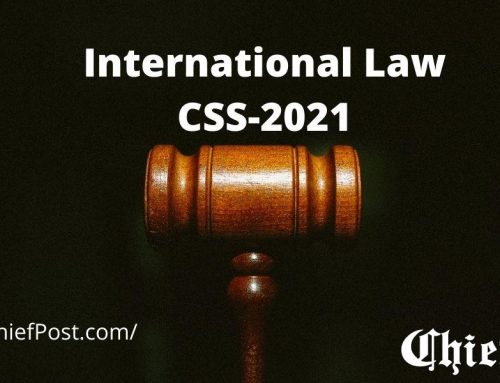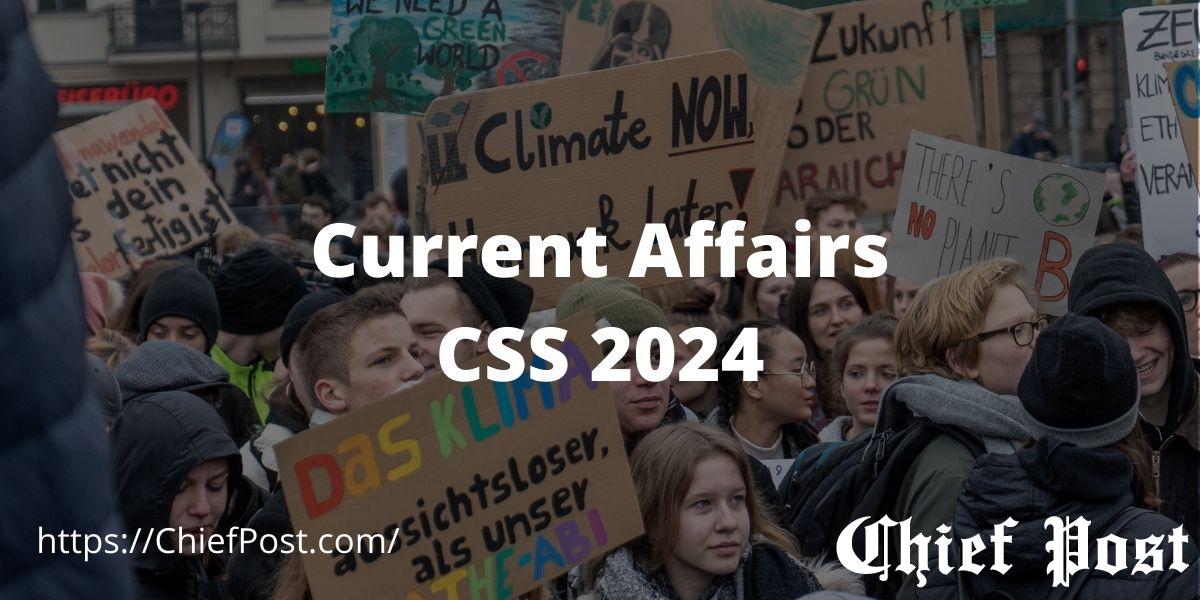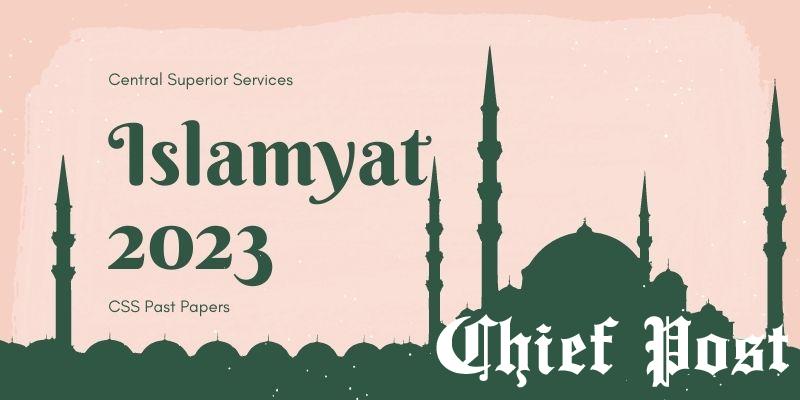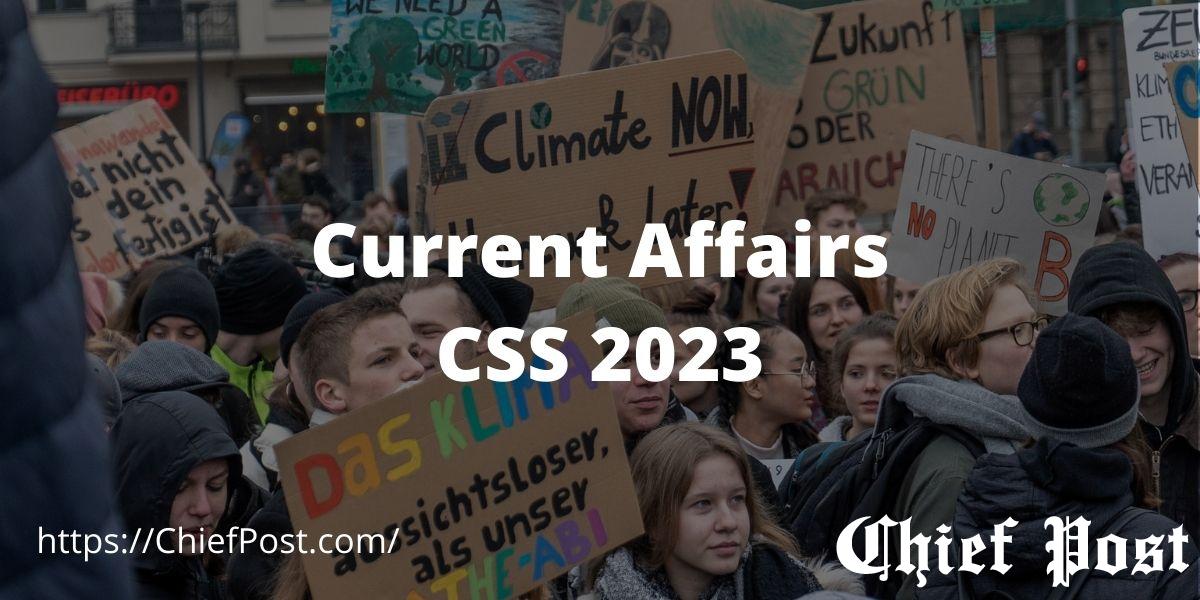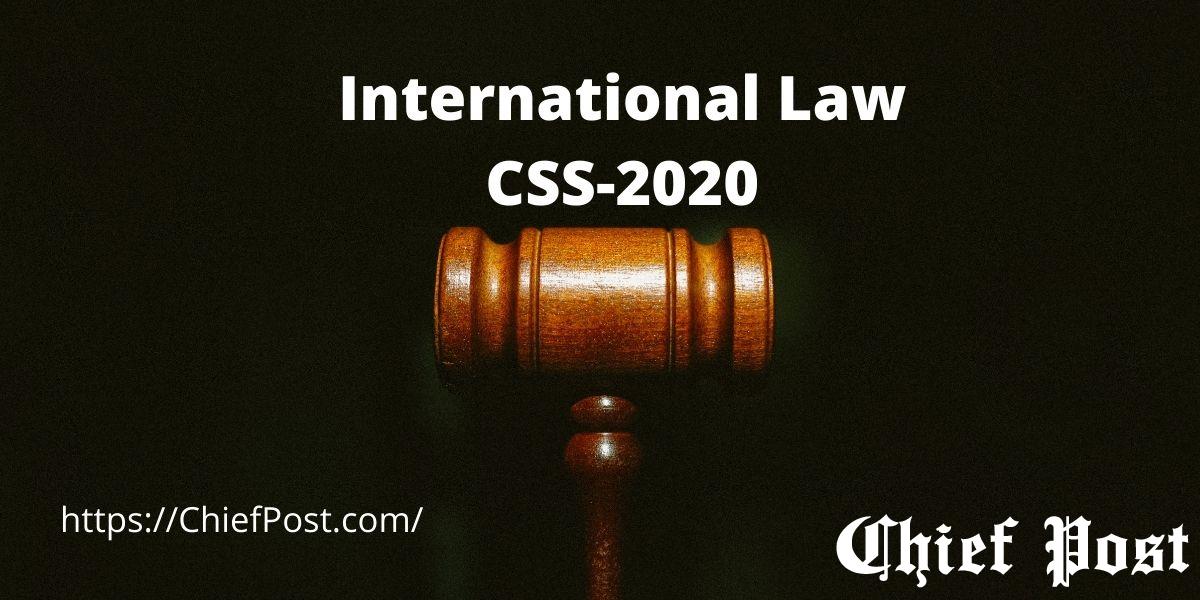
International Law 2020 — CSS Past Paper
FEDERAL PUBLIC SERVICE COMMISSION
COMPETITIVE EXAMINATION-2020 FOR RECRUITMENT TO POSTS IN BS-17
UNDER THE FEDERAL GOVERNMENT
International Law
TIME ALLOWED: THREE HOURS
PART-I(MCQS): MAXIMUM 30 MINUTES
PART-I (MCQS) MAXIMUM MARKS = 20
PART-II MAXIMUM MARKS = 80
NOTE:
- (i) Part-II is to be attempted on the separate Answer Book.
- (ii) Attempt ONLY FOUR questions from PART-II. ALL questions carry EQUAL marks.
- (iii) All the parts (if any) of each Question must be attempted at one place instead of at different places.
- (iv) Candidate must write Q. No. in the Answer Book in accordance with Q. No. in the Q.Paper.
- (v) No Page/Space be left blank between the answers. All the blank pages of Answer Book must be crossed.
- (vi) Extra attempt of any question or any part of the attempted question will not be considered.
PART-II
Q. No. 2.
“The rules regarding the persistent and subsequent objector reveal a critical weakness at the heart of international law. If a state can avoid being bound by any rule of customary international law, including a rule that achieves jus cogens standing, then international law cannot really be described as `law’.”
Critically examine the above statement, using examples from case law and state practice.
(20)
Q. No. 3.
‘The way in which a State approaches international law will depend on whether it adheres to the monistic or dualistic school of thought.’ Examine this quotation with examples.
(20)
Q. No. 4.
How Extradition has been defined in International Law? What is meant by non-extradition of ‘political offenders’? What are the conditions necessary for extradition?
(20)
Q. No. 5.
Blockade of the Ports or Coasts of a State by the Armed Forces of another State is an example of Aggressive Act. Explain the Laws relating to Blockade under International Humanitarian Law.
(20)
Q. No. 6.
Does current international law concerning immunity suggest that heads of state and former heads of state responsible for serious human rights violations would be well advised to remain at home?
(20)
Q. No. 7.
Critically appraise the position of international law relating to self-determination and secession in the light of the International Court of Justice’s advisory opinion concerning the status of Kosovo.
(20)
Q. No. 8.
Write short notes on following (10 each)
(a) Belligerent occupation in public international law
(b) Difference between state immunity and diplomatic immunity
(20)
**********

